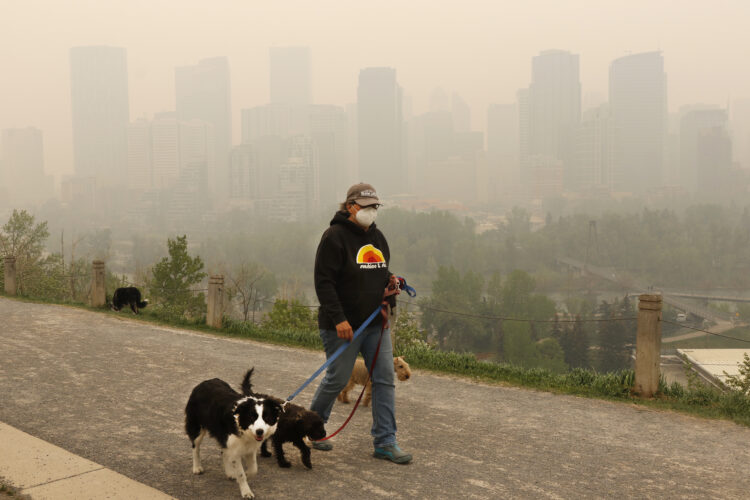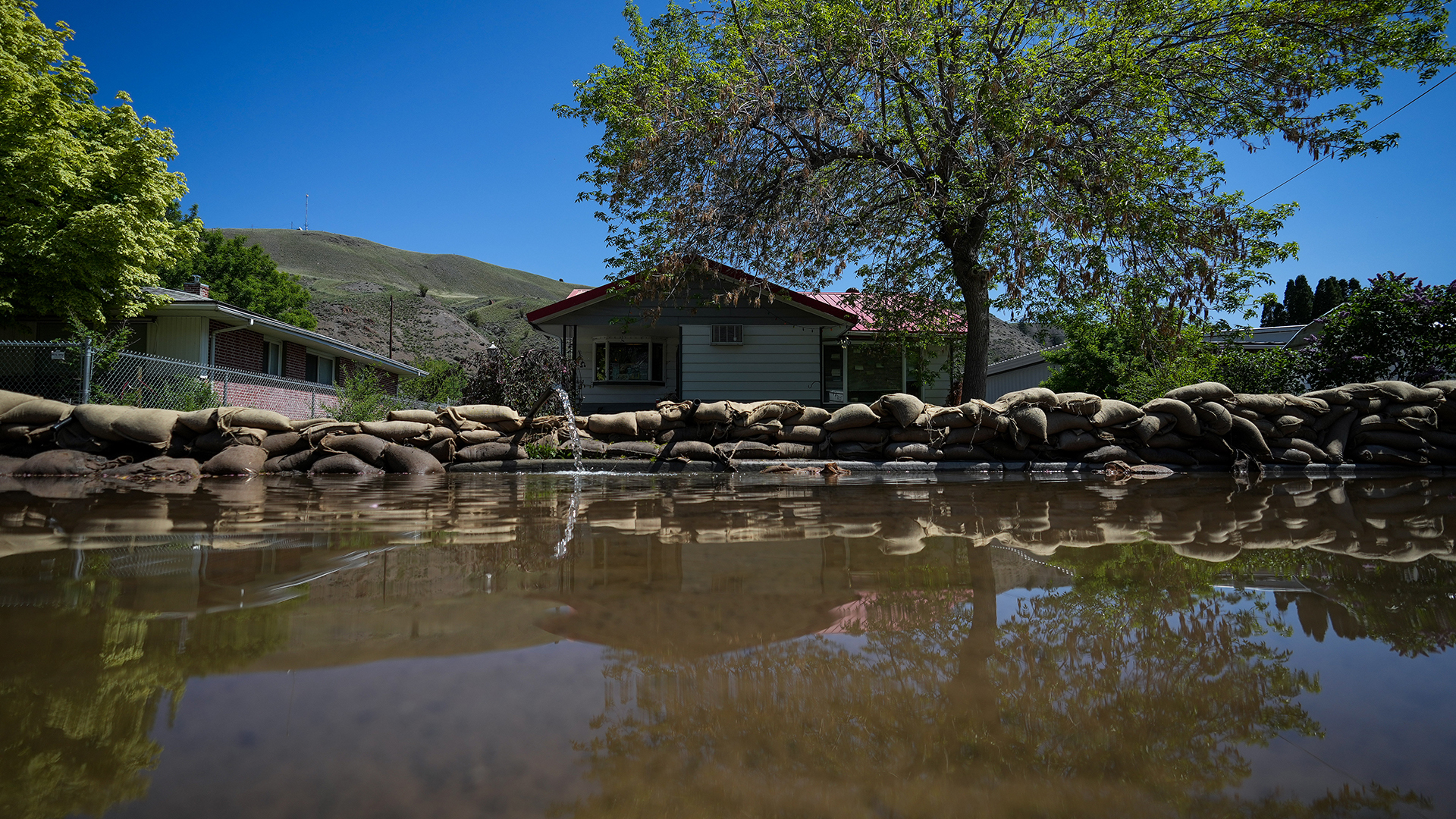
(Version française disponible ici)
Last February, the federal government used the Emergencies Act for the first time, ending the convoy crisis that had paralyzed Ottawa for weeks. That action led Canadians to debate how well the act worked and whether the rule of law was respected in the process. But Canada sits at a critical juncture regarding emergencies and we would be remiss to restrict our attention to future public order crises that might repeat past singular events.
Climate change is already causing layered, multijurisdictional crises, the shape and rhythm of which may be quite different from the emergencies for which our current legal framework was designed. While we need to review how well the act worked last year, our emergency laws and institutions must also be ready for what’s next.
Foundational problems, flexible solutions
Emergencies pit an urgent need for flexibility to act against democracy’s central demand for accountability for those actions. Nail that balance in emergency legislation and the rule of law prevails, even in a crisis. Get it wrong and we threaten our most cherished values.
On paper, the Emergencies Act looks exemplary. It surrounds emergency power with rule-of-law constraints. The act demands compliance with the Canadian Charter of Rights and Freedoms, and the International Covenant on Civil and Political Rights. It sets an intricate threshold for declaring an emergency – one so high that the act wasn’t used for 34 years after it was passed in 1988. Its provisions enable near-continuous judicial and legislative oversight. Then, Section 63 calls for a commission of inquiry – in the Ottawa case, the Rouleau commission – for public accountability after the fact.
In practice, the act worked largely as designed in the Ottawa case. Its powers were used imperfectly, yes, but briefly, safely, effectively and under properly intense scrutiny. The crisis was resolved with minimal harm.
But emergency legislation is designed for the unpredictable case, so such laws necessarily have elements of ambiguity. Inevitably, any specific emergency will reveal gaps and loose drafting, and will provoke calls to tighten its provisions.
Peaceful assembly rights should not protect protests that cause fear of violence
The “failure of federalism” at the siege of Ottawa was primarily a failure of governance
The Rouleau report and the politics of living next to a powerful neighbour
What’s more, the Emergencies Act is growing old. Rouleau and a range of scholars, myself included, have recommended convoy-inspired reforms. Rouleau recommends divorcing the act’s definition of a threat to national security from the Canadian Security Intelligence Services Act, to which it is currently bound. CSIS has a very specific mandate which does not map neatly onto the range of possible serious future threats. Others disagree, finding in the CSIS definition the necessary stricture for what might otherwise become a dangerously low threshold.
We should approach these threshold reform proposals with caution. There is no getting the threshold just right: too high and some future government will have to weasel around it; too low and some future government may abuse emergency power. Emergency thresholds will always be a question of political judgment, first for politicians, then for the citizens who hold them accountable. But wherever drawn, thresholds set standards that inform judgments. So it behooves us to do our best.
Preparing for cascading climate crises
While we look backward and ask what might prevent a similar crisis next time, Canada runs the risk of missing a crucial turn. Climate change is already altering the rhythm and pattern of the crises Canadians face. What’s coming may only grow more radical. Our legislative framework, across and between jurisdictions, is not ready for that.

Climate change threatens a braid of interconnected threats: cascading natural disasters, mainstreamed extremism, novel pandemics and economic crises, even calls for authoritarian governance to address the climate challenge. The convoy itself had deep links to anti-climate activism and this is just the tip of the iceberg. This climate crisis cascade will have its own rhythms which will likely be badly mismatched with the design of existing emergency powers. These were made to address discrete, intermittent crises, mostly confined within jurisdictional boundaries. To address this climate challenge, Canada needs to take action in four areas.
Make provinces accountable
First, provincial and territorial emergency law, which stands on the front line of increasingly frequent “natural” disasters, needs reform. Emergency law in non-federal jurisdictions still looks disturbingly like that old War Measures Act: almost no accountability mechanisms, almost free rein for governments. There is no reasonable excuse for this. We’ve seen how well emergency accountability can work at the federal level, and that should be every jurisdiction’s norm. Canadians must demand that provincial emergency legislation incorporate accountability mechanisms.
Correct perverse incentives
Second, the 2022 Ottawa occupation illustrated what we all knew from other contexts: our federal system creates perverse political incentives. Despite promises of federal-provincial-territorial joint emergency planning groups, in practice, when it serves a leader’s political interest, it’s too easy to offload responsibility for hard decisions to another jurisdiction. We cannot risk a dysfunctional response to a future crisis because of interjurisdictional wrangling. Given that Canadian politics is becoming more polarized and prone to extremism, including around climate measures, this may grow worse. To address this within constitutional bounds may be difficult indeed. But our collective life may depend on it.
[wd_hustle id=”20″ type=”embedded”/]
Adapt accountability measures to frequent crises
Third, we must consider how the Emergencies Act’s accountability measures may fare if emergencies shift in frequency and rhythm. The act envisions emergencies as discrete entities that will fit within one of the act’s four categories, and it assumes stability will be restored sufficiently for prompt, after-the-fact accountability to take place: commissions of inquiry, federal court cases. What happens if the climate crisis cascade means there’s too little time for these mechanisms to work? To address this likely scenario will demand institutional creativity.
Look internationally
Finally, the Ottawa occupation generated plenty of attention to the public order features of that emergency category, but scant attention to the act’s other three emergency categories – public welfare, international, and war emergencies. Notably, we already see shifts in the mode of conduct of international conflict: are the latter two categories, their thresholds and powers, ready for what’s coming?
To preserve the rule of law requires we be prepared for the shifting rhythms of emergencies. As climate change sparks more frequent natural disasters, as climate response, and reactions to climate response, become more polarized and fraught, the rhythm of accountability and the interjurisdictional framework through which we address emergencies may cease to make sense.
Let’s make sure we are prepared, so that Canadians may continue to live under the rule of law together.
This article is part of the Lessons from the Rouleau Commission special feature series.










